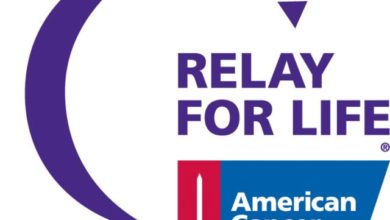Concerns raised over school reopenings, Covid vaccines for kids in Venezuela

By Genesis Carrero Soto
Caracas, Sep 16 (EFE).- Venezuelan parents and experts are expressing concerns over President Nicolas Maduro’s announcement that children between the ages of three and 17 will be vaccinated against Covid-19 starting next month, a decision that coincides with his administration’s likewise controversial decision to resume in-person schooling after an 18-month hiatus.
The argument being given by experts and ordinary citizens alike is that as long as Covid-19 vaccinations are not ruled to be completely safe for children the government should prioritize making further strides in immunizing the at-risk population and personnel in the health care and education sectors.
Alejandro Risquez, a pediatrician, epidemiologist and university professor, told Efe that the decision to vaccinate minors under the age of 12 should be subject to a “careful review process” with input from Venezuela’s scientific community.
“We’d have to presume that the vaccines entering the country (will be used) to immunize all the teachers and all the administrative personnel, especially those at greater risk who still have not been vaccinated. Later we could think about definitively looking into vaccines for children, based on the progress that’s made,” Risquez said.
To date, the World Health Organization’s Strategic Advisory Group of Experts on Immunization has only backed one vaccine – Pfizer/BioNTech’s, which has not arrived in Venezuela – for use by people aged 12 years and above.
The expert said that unlike in countries such as Chile, where the inoculation of children six years and older has been approved and the vaccine campaign for kids is very far along, Venezuela has not yet fully immunized its entire at-risk population.
Only 15 percent of Venezuela’s population has received the full vaccine series, according to the Our World in Data website, and the WHO recommends that governments continue to prioritize at-risk groups when mapping out their immunization strategies.
Covid-19 has been “a more serious and dangerous disease among older people. Now that the vaccines have been determined to be safe for adults, they are being studied in children,” the WHO said.
Some Venezuelan parents are hesitant about their children getting a Covid-19 shot.
“I wouldn’t willingly vaccinate my child,” Marisol Gonzalez, a Caracas woman who also said she is concerned about the resumption of in-person schooling and the possibility that her son could pass the disease onto others, said in an interview with Efe.
“I think it’s a personal decision, but if there are adults who are reluctant to get vaccinated despite being urged (to do so), it’s more delicate in children,” said Gonzalez, who questioned to what extent individuals are free to make their own choices.
Argelis Molina, who was waiting in line to get vaccinated at a center set up by the Red Cross in eastern Caracas, said that before deciding to inoculate her four-year-old daughter against Covid-19 she would need assurances that her child would not suffer any side effects.
“I wouldn’t do it just because they tell me to so I can take her to school,” the young woman said.
Edgar Machado, president of the Venezuelan Teachers’ Union for the Caracas region, spoke to Efe about the risks teachers face with a return to the classroom and said at least 400 educators in the Capital District alone are still waiting to receive a second dose of Russia’s Sputnik V vaccine.
Their situation is “tragic,” he said, adding that it was not until last Saturday that a vaccine program was launched for members of that union at three Caracas-based schools.
“They’re administering 300 doses per day in these centers, and there are more than 15,000 teachers in the Capital District,” Machado said. “At this rate, we’d need 50 working days to vaccinate 100 percent of the teachers in this area just with the first dose.” EFE
gcs/mc





